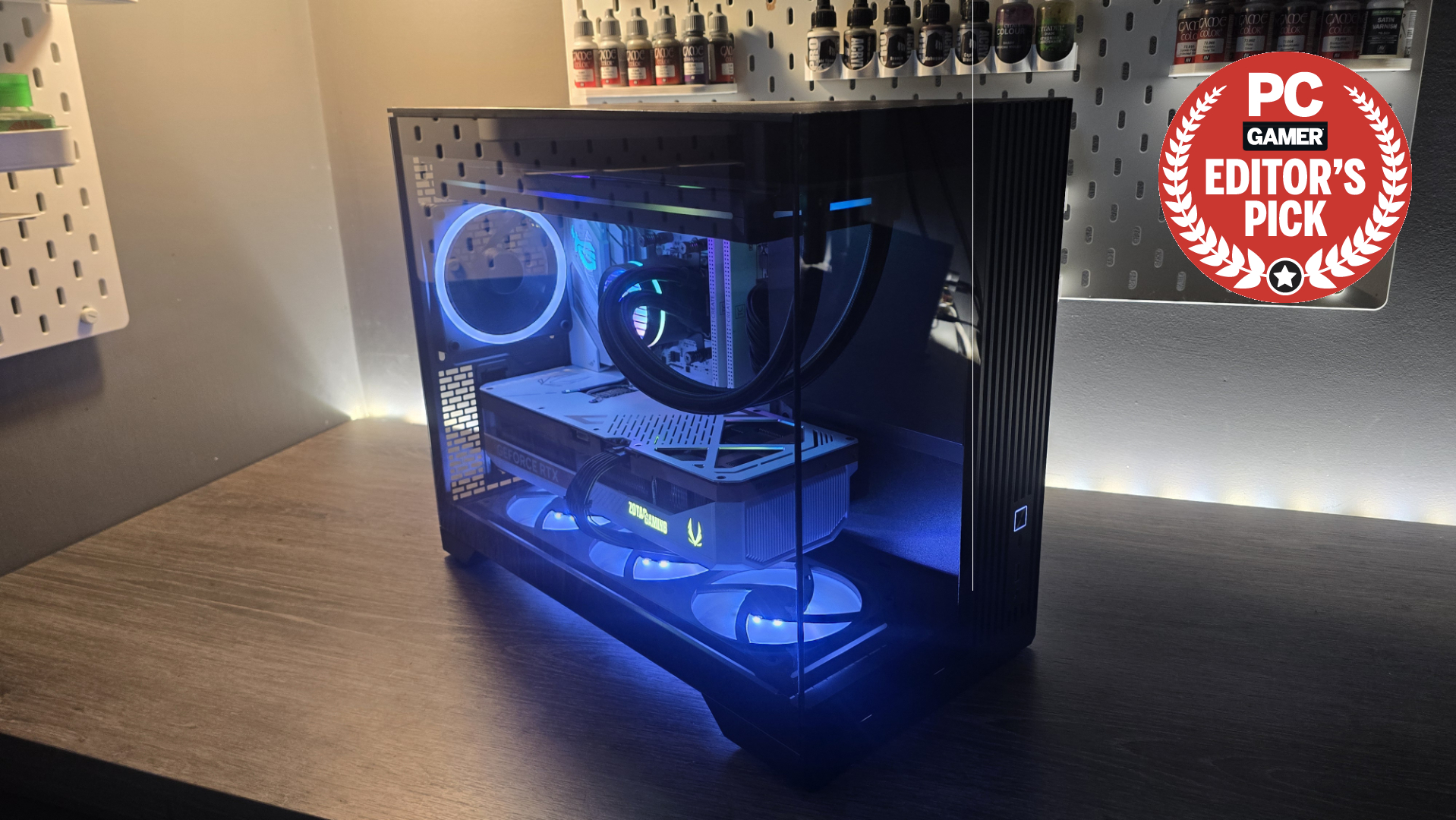Nvidia CEO Jensen Huang: 'At the moment we are 100% out of China... it's important to be mindful that what harms China could oftentimes also harm America'
'We went from 95% market share to 0%.'
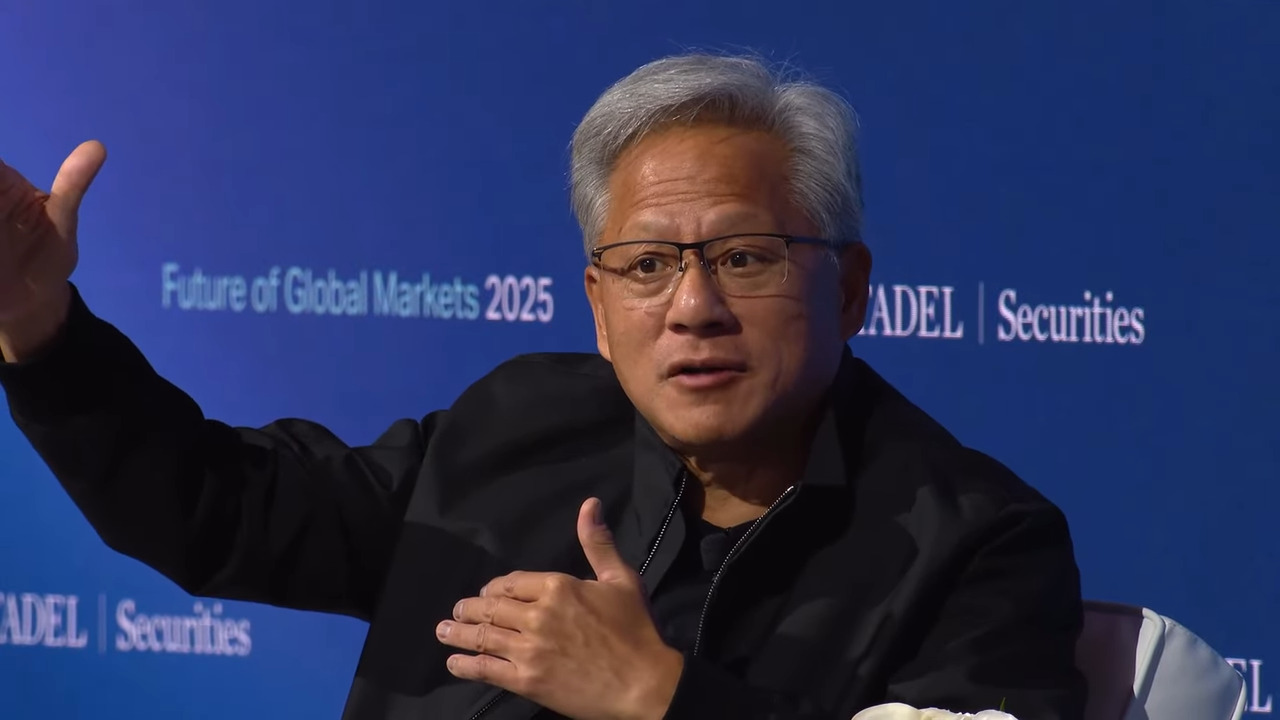
Keep up to date with the most important stories and the best deals, as picked by the PC Gamer team.
You are now subscribed
Your newsletter sign-up was successful
Want to add more newsletters?
Nvidia CEO Jensen Huang spoke at the Citadel Securities Future of Global Markets 2025 conference last week, and would you believe it, most of the conversation centred around AI. However, the NV head honcho also had some comments to make on China's role within AI development, and Nvidia's efforts to sell its AI hardware within the country—along with some commentary on US trade policy between the two.
"It's important to be mindful that what harms China could oftentimes also harm America, and even worse," said Huang (via Wccftech). "And so before we leap towards policies that are hurtful to other people, take a step back and maybe reflect on what are the policies that are helpful to America."
"China has about 50% of the world's AI researchers, incredible schools, incredible focus in AI, lots of passion around AI. And I think it's a mistake to not have those researchers build AI on American technology," he continued.
"We are 100% out of China… we went from 95% market share to 0%, and so I can't imagine any policy maker thinking that's a good idea, that whatever policy we implemented caused America to lose one of the largest markets in the world."
Certainly, Nvidia looks to have found itself at the centre of trade frictions between the two countries. While pre-existing US AI chip export bans to China appeared to be loosening earlier this year, in the form of Nvidia's US government-approved licenses to sell its H20 AI GPUs in the country, progress has since appeared to stall, as the two countries engage in a protracted trade dispute.
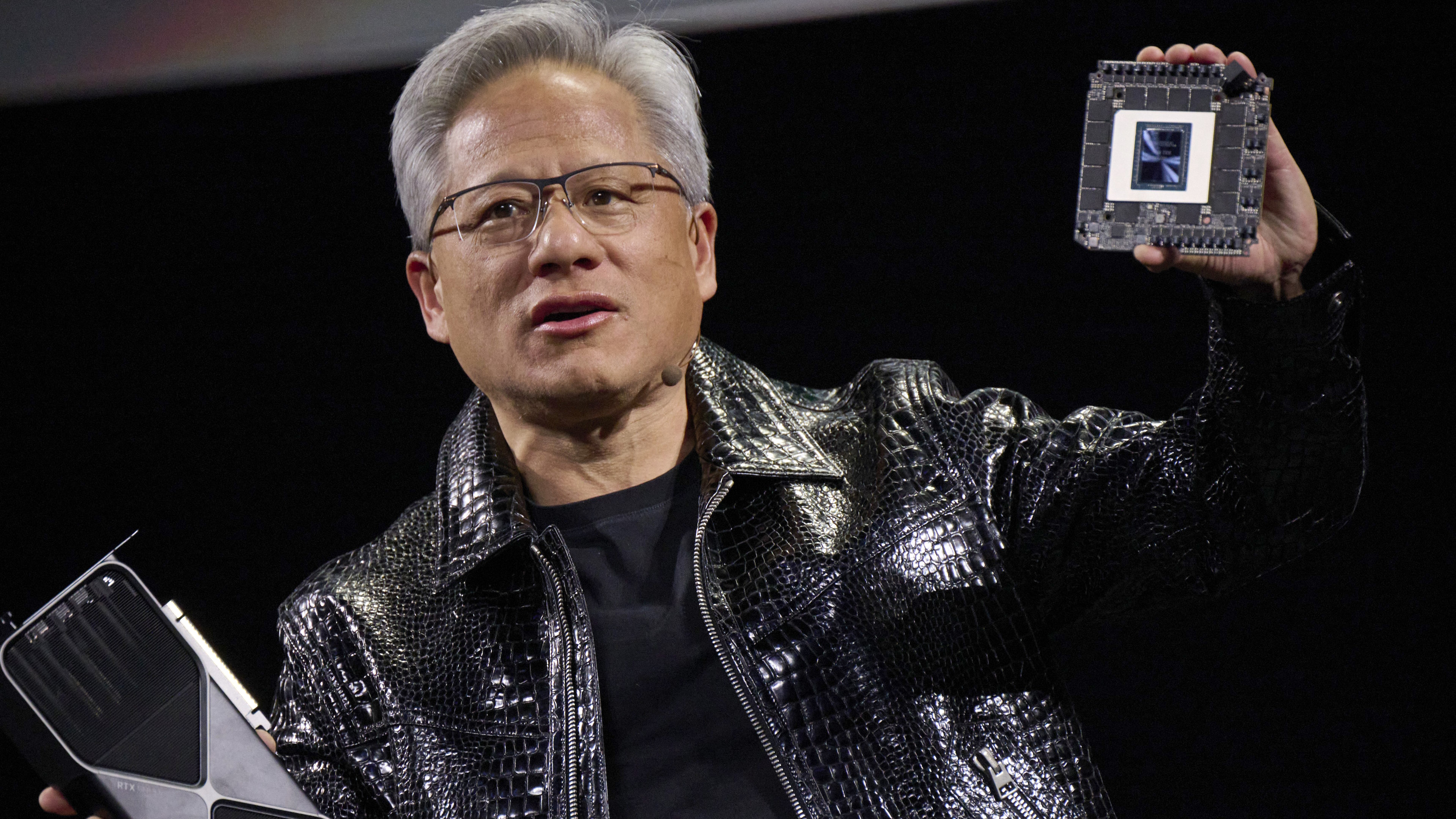
Nvidia's CFO recently described the stalled progress as "a little geopolitical situation between the two governments", but little or not, it still appears that Nvidia remains in AI chip limbo in regards to the Chinese market.
For China's part, production was also reportedly paused on H20 GPUs as a result of security concerns from the Chinese authorities halting their sale, and potential buyers were left waiting to purchase chips that have yet to make it past the restrictions. Huang has also previously expressed his disappointment at the news that China's internet regulator had banned some of the country's largest tech firms from buying the China-specific RTX Pro 6000D.
Keep up to date with the most important stories and the best deals, as picked by the PC Gamer team.
And all the while Nvidia watches as the two geopolitical giants battle it out, its Chinese competitors, like Huawei, look to be making great progress in its absence.
Last week, Trump announced a new 100% tariff on Chinese goods in relation to a rare earth metal dispute, alongside new export controls on "any and all critical software", which suggests that trade friction between the two superpowers isn't likely to calm any time soon. While AI hardware has slipped from the headlines in the recent disputes, it's never far from the frame—and Nvidia's AI chips still remain unobtainable by legitimate means on Chinese shores.
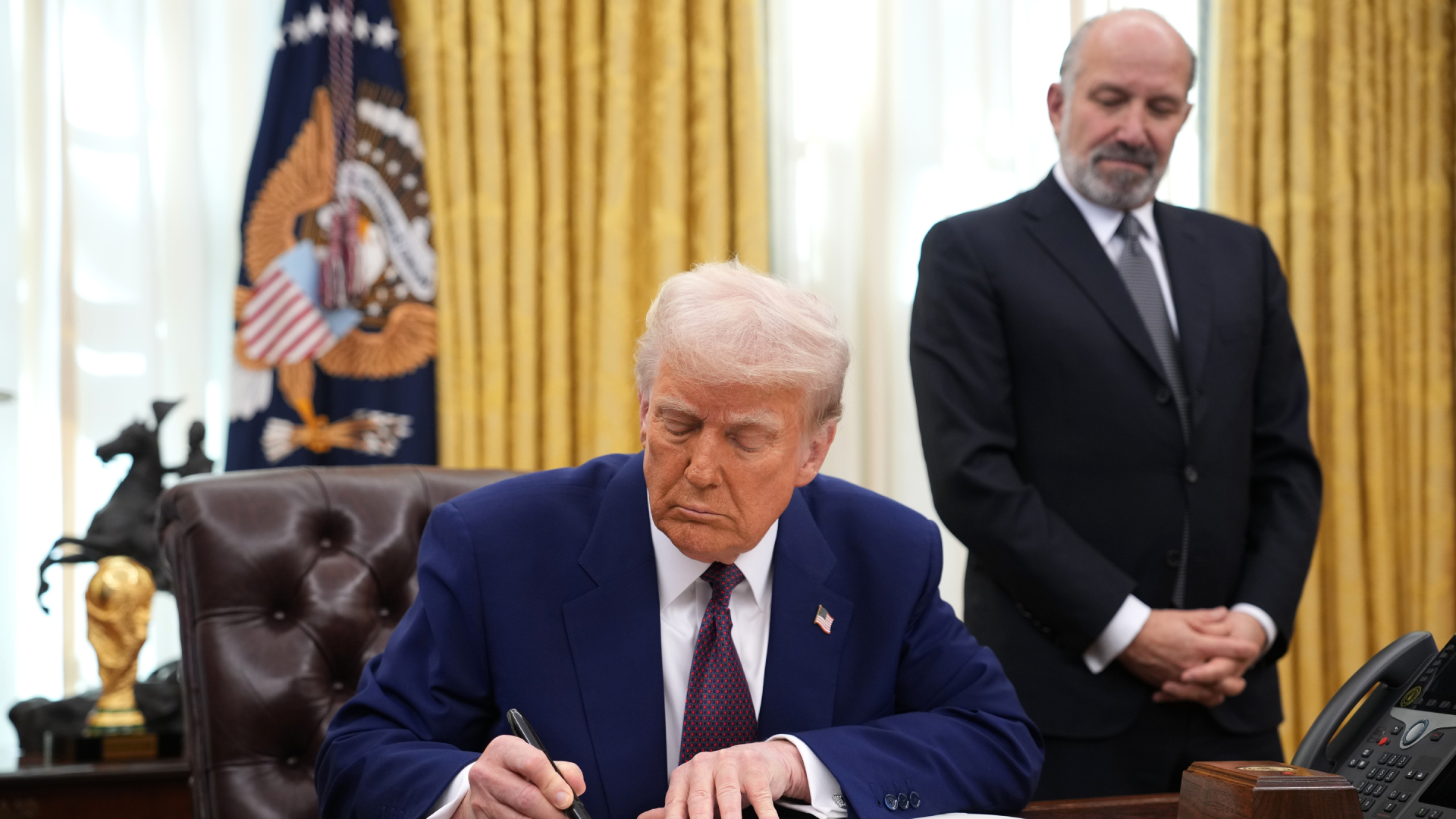
In short, the ongoing trade disputes between the US and China have been a real headache for Nvidia, and while Huang and the Trump administration appear to be on good terms, even the considerable weight of the most valuable company in the world doesn't appear to have made much of a dent on current US or Chinese government policy.
It looks like Nvidia will just have to wait to see how things play out— because as relations between the two countries currently stand, the company's Chinese market aspirations appear to be well outside of its control.
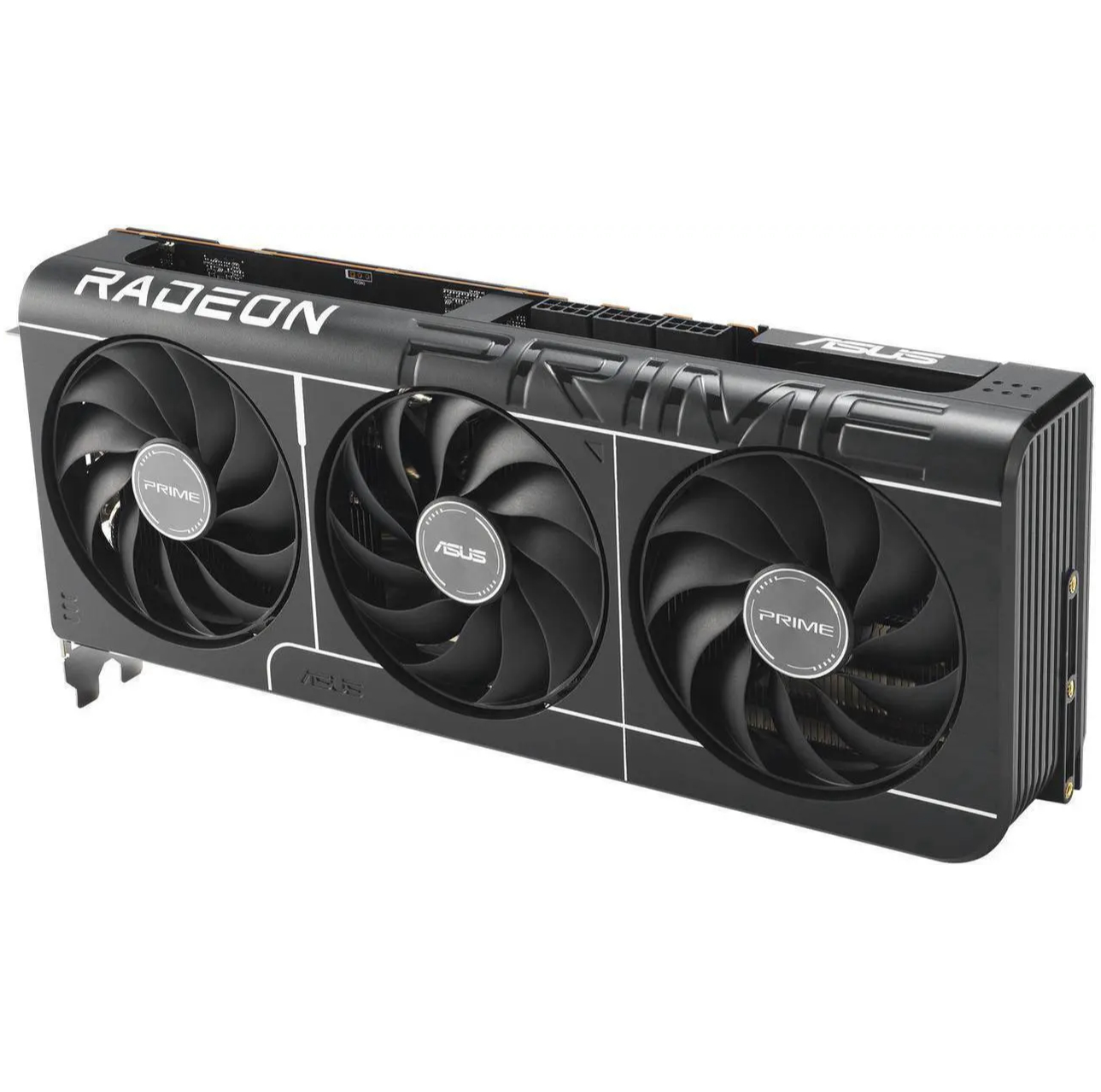
1. Best overall: AMD Radeon RX 9070
2. Best value: AMD Radeon RX 9060 XT 16 GB
3. Best budget: Intel Arc B570
4. Best mid-range: Nvidia GeForce RTX 5070 Ti
5. Best high-end: Nvidia GeForce RTX 5090

Andy built his first gaming PC at the tender age of 12, when IDE cables were a thing and high resolution wasn't—and he hasn't stopped since. Now working as a hardware writer for PC Gamer, Andy spends his time jumping around the world attending product launches and trade shows, all the while reviewing every bit of PC gaming hardware he can get his hands on. You name it, if it's interesting hardware he'll write words about it, with opinions and everything.
You must confirm your public display name before commenting
Please logout and then login again, you will then be prompted to enter your display name.

